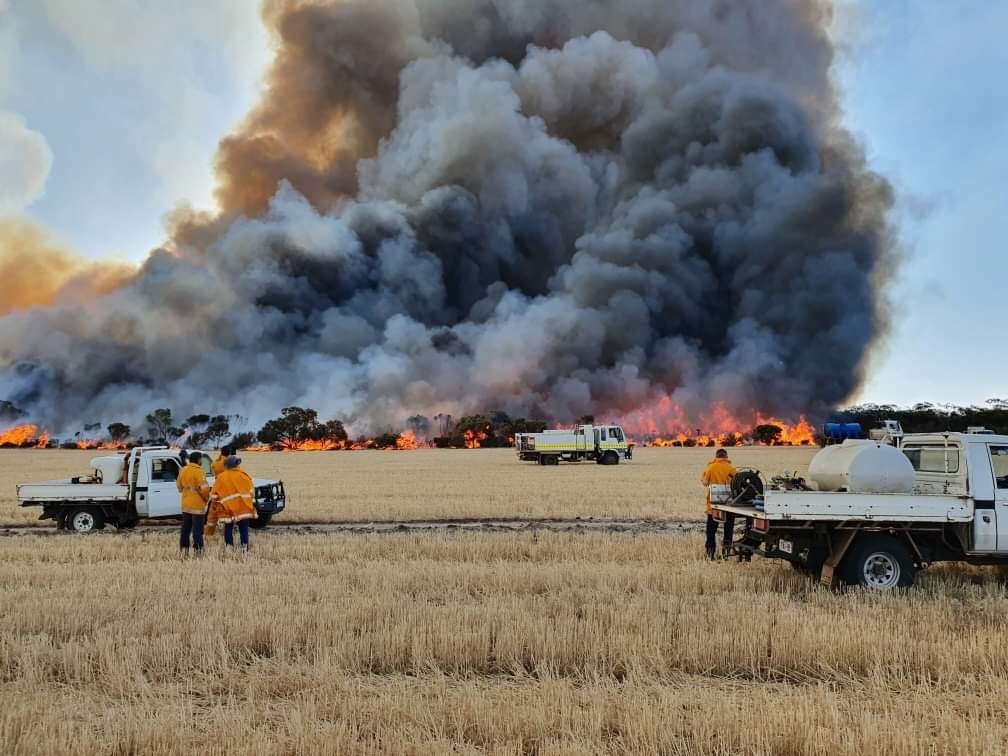
LGIS has received legal clarification on whether the definition of an 'officer' within the Work Health and Safety Act 2020 (WHS Act) could reasonably include people performing the following roles:
- Chief Bush Fire Control Officers (CBFCOs) and Deputy Chief Bush Fire Control Officers (DCBFCOs)
- Bush Fire Control Officers (BFCOs)
- Community Emergency Services Managers (CESMs)
Legal firms McLeods and Mills Oakley have provided similar advice, as per below.
Background
As previously communicated, the incoming WHS Act introduces a number of new terms, duties, duty holders, and penalties – some of which are personal in nature. One of the most significant changes is the introduction of a class of duty holders known as 'officers' who have personal duties and liabilities.
Officers are those individuals within an organisation who make (or participate in) decisions that affect the whole or a substantial part of the organisation.
It's important to note that whether a person is a paid employee or a volunteer is inconsequential for the purpose of determining if they are an officer under the WHS Act.
Brett McKie v Munir Al-Husani & Kenoss Contractors Pty Ltd (in liq) [2015] ATCIC 1 (Al-Husani).
In this case, Mr Al-Husani was charged with breaching his duties as an officer of Kenoss Contractors Pty Ltd, under the provisions of the WHS Act 2011 (ACT), in relation to a fatal incident at a construction site.
In the decision, Industrial Magistrate Walker stated that the 'concept of an officer should be viewed through the prism of the organisation as a whole rather than a particular function in which the individual was engaged'.
The Magistrate identified several factors to assist in determining whether a person can reasonably be said to make or participate in making decisions that affect a whole or a substantial part of an organisation. These included whether Mr Al-Husani:
- had the ability to hire and fire employees
- could 'commit corporate funds' (emphasis added)
- had authority to 'sign off' on tenders
- could determine the corporate structure
- had involvement in, or developed, company policy or procedures 'as to the type of business to be pursued'
As the Magistrate found in this case that Mr Al-Husani could not and did not perform any of the above, he did not satisfy the definition of an 'officer' under the WHS Act.
What does this mean?
While Mr Al-Husani had responsibility for the management and delivery of several largescale projects for the organisation, the Magistrate determined that this constituted 'operational responsibility', as opposed to organisation-wide, strategic responsibility.
Applying the factors identified by the Magistrate in Al-Husani to the bushfire roles in question, we arrive at the same conclusion. That is, none of those positions have the authority to make decisions such as those identified by the Magistrate in Al-Husani, in respect of the local government as a whole.
While each of the roles is no doubt critical to bush fire control activities of a local government, as these activities are only one part of the operations of a local government, it cannot reasonably be said that they make or participate in making decisions that affect the whole or a substantial part of the local government.
It's also important to note the fact that the word 'officer' appears in a position title is not determinative of the issue either.
Therefore, none of the above roles could reasonably be considered 'officers' of the local government for the purposes of the WHS Act, regardless of how the role is appointed and whether they are paid or voluntary.
WorkSafe have released an interpretive guideline, 'The health and safety duty of an officer,' which will also provide guidance.
If you have any further questions about this, please contact LGIS WorkCare Manager Carrisa Chung on 0438 959 961.